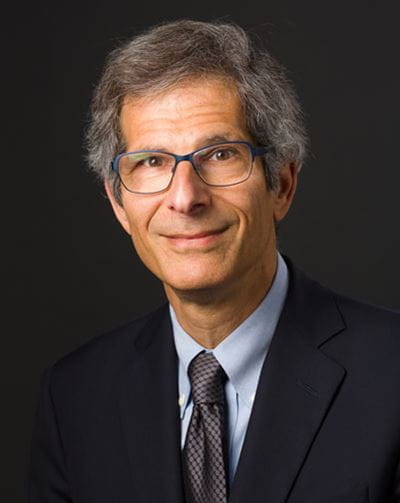INDIANAPOLIS — Kevan Herold, MD, a pioneering researcher in the field of translational immunology, has been named the 2025 winner of the August M. Watanabe Prize in Translational Research.
Awarded by the Indiana University School of Medicine, the Watanabe Prize is one of the nation's largest and most prestigious awards recognizing individuals focused on shepherding scientific discoveries into new therapies for patients. The prize is awarded to a senior investigator who has made a significant contribution to the field of translational science.
Herold is the C.N.H. Long Professor of Immunobiology and of Medicine (Endocrinology) at Yale University, a position he has held since 2019. His previous appointments include associate professorships at the University of Chicago and Columbia University and as an associate attending physician at New York Presbyterian Hospital.
Through his work, Herold has made critical discoveries leading to the first drug approved to change the course of Type 1 diabetes and the first approval of any drug for delay of autoimmune disease before clinical presentation. He has applied his studies in the clinical setting to develop new therapies for autoimmune diseases, identify issue/immune cell interactions, and to understand autoimmunity induced with cancer therapies.

Kevan Herold, MD. | Photo courtesy of Kevan Herold
"Being selected for this award is a great honor for me," Herold said. "The award has recognized translational scientists who have changed clinical medicine which has also been the goal of my studies. I hope that this recognition inspires the many who are devoted to using discoveries in medicine to improve the lives of patients."
As the 2025 Watanabe Prize winner, Herold will receive $100,000 and be honored at the Indiana Clinical and Translational Sciences Institute's Annual Meeting in Indianapolis. Herold will deliver the meeting's keynote address. Housed at the IU School of Medicine, the Indiana CTSI is a statewide partnership among IU, Purdue University, the University of Notre Dame and the Regenstrief Institute.
"We are excited to welcome Dr. Herold to our campus next fall," said Tatiana Foroud, PhD, the August M. Watanabe Professor of Medical Research and executive associate dean for research affairs at the IU School of Medicine. "His work, discoveries and strong laboratory investigations in the field of translational immunology have changed the field and how we approach treating patients."
Herold was nominated by Nancy J. Brown, MD, Jean and David W. Wallace Dean of the Yale School of Medicine and C.N.H. Long Professor of Internal Medicine at Yale University.
The Watanabe Prize is eponymously named in honor of the late August M. Watanabe, a titan in the field of translational research in both academia and industry who impacted the health of people around the world as a leader at the IU School of Medicine and Eli Lilly and Company.
Previous Watanabe Prize recipients include Craig B. Thompson, MD (2024); Huda Zoghbi, MD (2023); Adrian R. Krainer, PhD (2022); Nancy J. Brown, MD (2021); Brian Druker, MD (2020); David Holtzman, MD (2019); Jean Bennett, MD, PhD (2018); Robert J. Lefkowitz, MD (2016); Carl H. June, MD (2015); and Tadataka Yamada, MD (2013).
About the Indiana University School of Medicine
The IU School of Medicine is the largest medical school in the U.S. and is annually ranked among the top medical schools in the nation by U.S. News & World Report. The school offers high-quality medical education, access to leading medical research and rich campus life in nine Indiana cities, including rural and urban locations consistently recognized for livability. According to the Blue Ridge Institute for Medical Research, the IU School of Medicine ranks No. 13 in 2023 National Institutes of Health funding among all public medical schools in the country.
Writer: Luke Norton, lcnorton@iu.edu
For more news, visit the IU School of Medicine Newsroom: medicine.iu.edu/news




